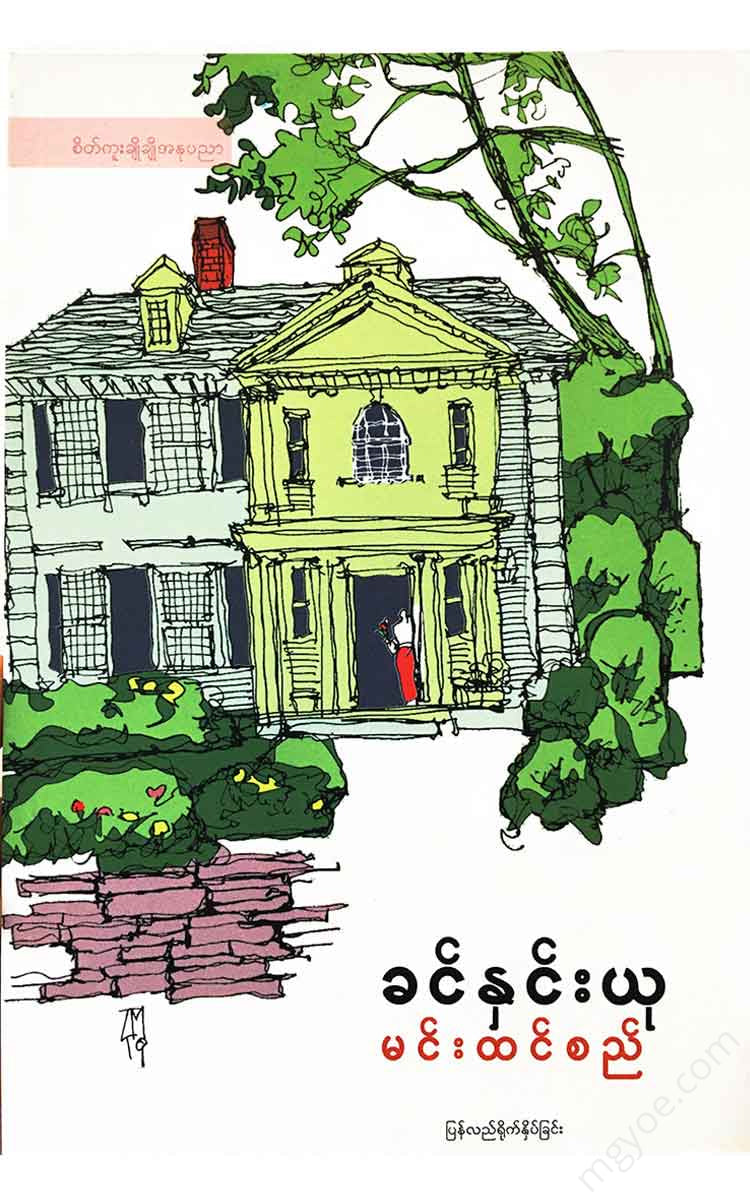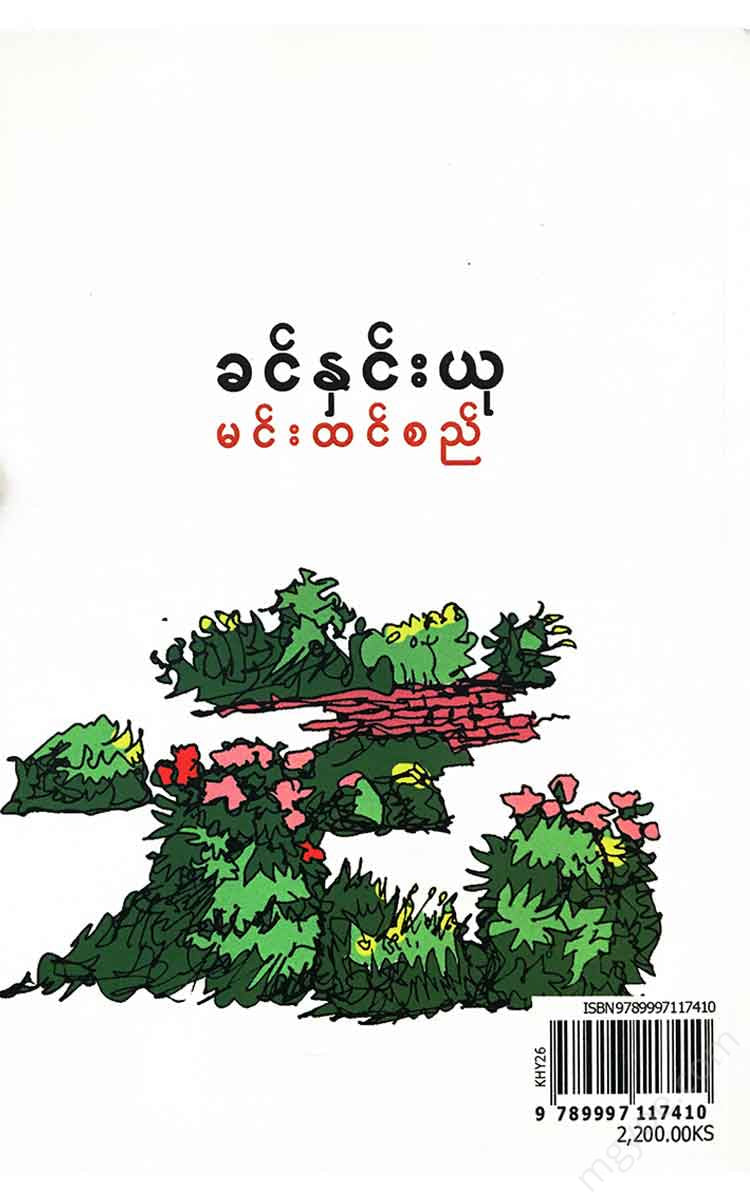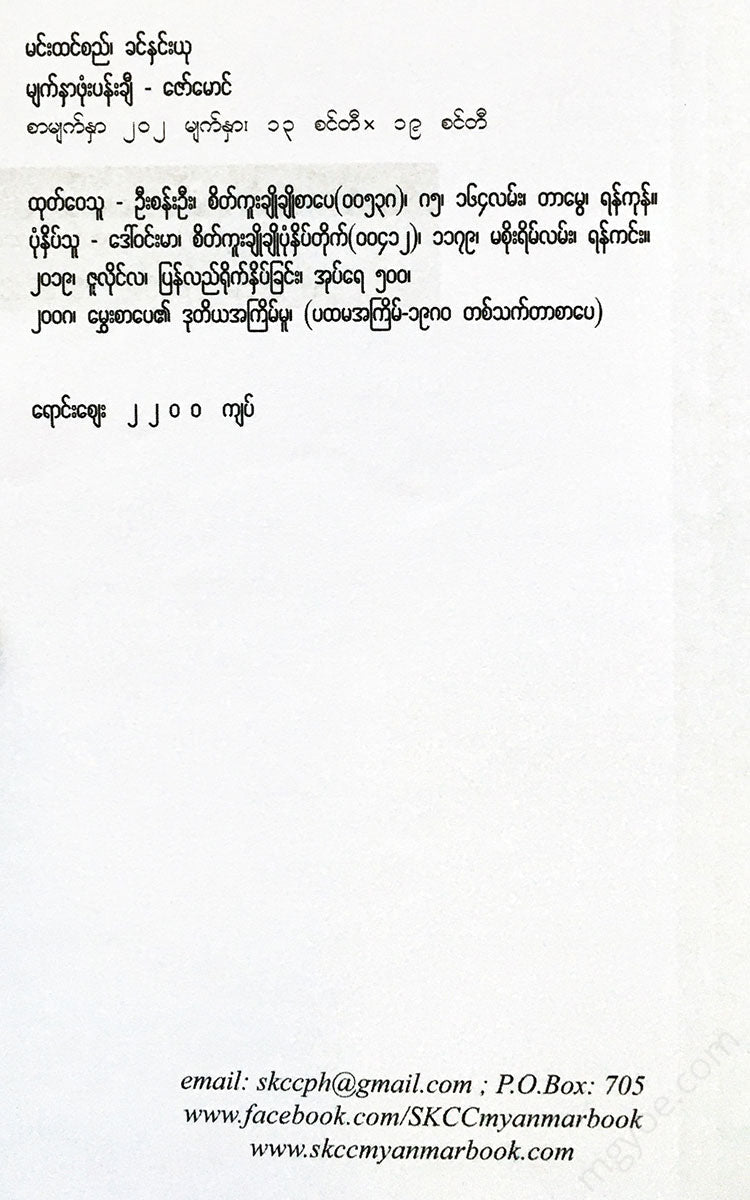စိတ်ကူးချိုချိုစာပေ
Khin Hnin Yu - Min Htin Si
Khin Hnin Yu - Min Htin Si
Couldn't load pickup availability
Chapter (1)
"May it be a blessed meeting"
It was an autumn day. Only a few snowflakes were flying and the cold was not yet severe. As the hosts had prayed, it was a day of auspicious meeting for the guests.
Visitors can see this small sign erected on the grassy lawn. This small sign is also rarely seen on the flower beds where winter flowers bloom. Even if the winter wind blows and waves, the small signs will not lose their shape.
The person who invented this word and arranged to have it written and hung on the large lawn where the reception was held was U Mann Gyi, a cultural officer. He was happy to be able to recall some Burmese traditional culture, whether at his home or at weddings held in his family circle.
Since ancient times, when Burmese people meet each other, whether it is between kings and emperors, between ordinary people, or between monks of religious lineages...
"May it be a good birth," they recited the Patitha Sandhara connection, offering a blessing and then spoke about the desired matter.
The scenery of that autumn morning was unforgettable. It came back to her eyes. The flowers, the leaves on the grass.
The fresh sun is not yet hot. It is warm and warm.
Soung Le Oo entered the audience with the gentle steps of a sensual young girl. They seemed to be protecting themselves from Soung Le Oo's piercing and moving air.
The winter wind also carried the scent of blooming hyacinths from the pillars behind the lawn. The fragrance of the beautiful wild flowers from the orchid house also reached the audience with the dewdrops.
Under the warm sun, the bright colors of the guests' costumes competed with the colors of the flowers. That day, Barani thought that the sight of the temple should be described in a poem: "When happiness is the pillar..."
U Mann Gyi presided over and organized the one-year birthday celebration of his grandson, “Pale Daru.”
Pearl Daru was a “good girl.” It would not be wrong if her whole family did not gather around her on her first birthday. In Barani’s mind, she even thought that “Ame” had passed away.
Because of the song "Pale Daru's first birthday". The composer of this song was U Mann Gyi's wife, Daw Khin Myat San. Wasn't Daw Khin Myat San the great-granddaughter of King U Sa of Myawaddy? U Sa was the one who brought Burmese music and great songs to life in the late Konbaung period, and who not only composed authentic Burmese songs but also ancient songs from our neighboring country, Thailand, with Burmese words.
Now, Daw Khin Myat San, one of U Sa's descendants, has followed in her grandfather's footsteps and composed and recorded a birthday song for her granddaughter, Pale Daru. The piano player is Barani herself.
A relative of Pa Lae Daru's father, Ko Saw Oo (the famous painter Saw Monic), and a sister of U Hla Than Myint's wife, Daw Lay Shwe, who sang the song "Khao Khao" (Khao).
Daw Myat Lay Thwe sang the birthday song herself to bless their grandson, Pearl Daru.
Daw Myat Lay Thwe had to come and go to Barani's house a lot because of Pearl Daru. They used to sing songs with Barani. Previously, Saw Monic's family and Pearl's family had been at odds, but now their relationship has become smooth and harmonious.
Pearl Daru is a good girl because she built a bridge of peace between the two families.
It is reasonable to assume that Barani thought that Pearl Daru had been neglected and neglected by her relatives, both her grandparents and her parents. The lyrics of the first birthday song must have been "inferior" to her.
In fact, in the history of Burmese literature, these words are the words that are often written and composed at the cradle weddings of the sons and daughters of the royal family, and the children of the emperors. When the babies of the emperors were cradled, the little baby, who did not even know that he was a human, understood the meaning of the words or not. The poets wrote and sang about the glory and power of the seven generations of the ancestors, the battles they won, the extent of the territories they ruled, etc.
They criticize from another perspective that they are alienated from the earth, as they are golden-eared eunuchs who are exalted by the views of the times and the titles of kings and emperors, and who are constantly writing and writing.
However, from another perspective, not only do we find evidence of the traditional and refined culture of the Burmese people in the Echins, but we can also find facts and information that are sometimes lost in history through the words of the Echins, and we can be grateful to the ancient writers for this.
Even in Western Europe, there are still poets and writers who are loyal to their ancestors and who give their blessings and praise to the kings, emperors, and dictators of the past. Burmese poets are not to be blamed.
Let it be, let it be for these Echins, the barani studied and analyzed with forgiveness. It took to heart. Because the Maha Maha Sakis are the children of the year, the years of the year, and those words should be added. It should be composed. The noble one also read those songs when the child grew up and before he reached the royal life, the spirit of bravery like the brave and brave people of the past and present was aroused. Isn't bravery a quality that any nation should have?
In the medieval battles when the Burmese fought against the British colonialists, they were mobilized and inspired with songs.





